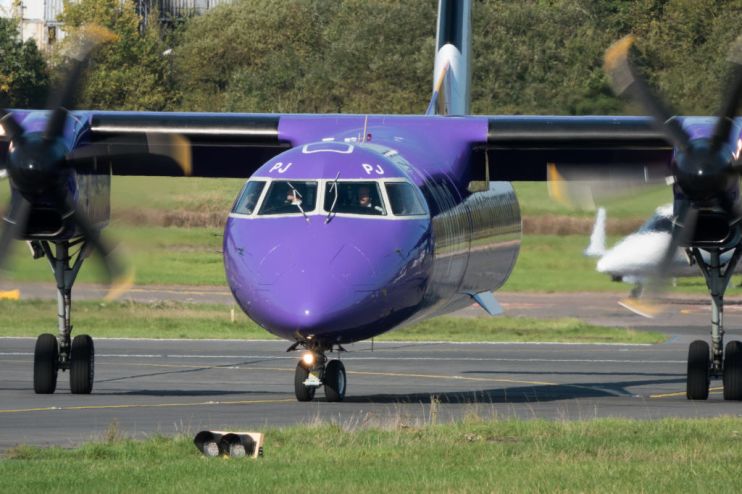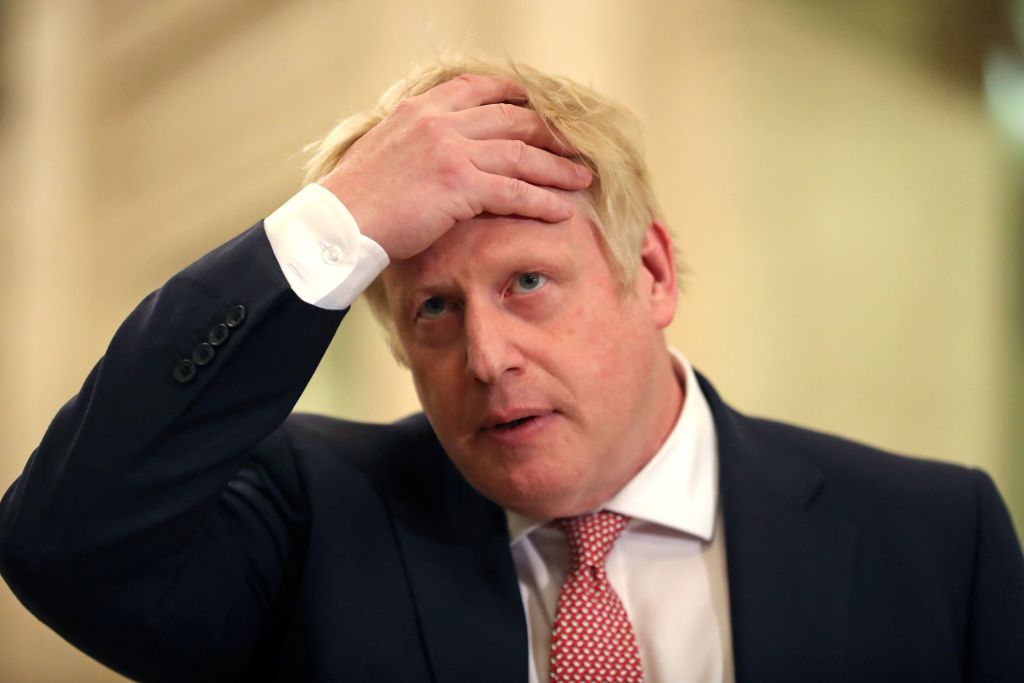Q&A: Why would cutting air passenger duty help Flybe – and how is it damaging?

In a bid to save regional airline Flybe, chancellor Sajid Javid is meeting officials from the business and transport departments today.
Prime Minister Boris Johnson has already shown he is against conventional bailouts for struggling companies – as he showed when he decided against keep Thomas Cook afloat in September. But one option still on the table is cutting air passenger duty.
This could help Flybe, but environmental groups have slammed the proposed move.
What is air passenger duty?
Air passenger duty, or APD, is the tax applied to all passenger flights from UK airports – except for the Scottish Highlands.
The amount depends on your flight – passengers on domestic flights pay £13 in APD for each journey. Longer flights and premium tickets get taxed more.
It was first launched in 1994, and was initially just £5 for either a one-way or return flight within the UK. But European Union rules meant that it had to be applied to both legs of any given journey.
The tax has also outstripped inflation by more than 50 times since then. The tax currently brings in about £3.6bn a year, and is set to rise again in April.
Sarah Coles, personal finance analyst at Hargreaves Lansdown, said it was “one of the most successful stealth taxes of the past 25 years”.
Read more: What do we know so far about Flybe’s ‘near collapse’
Read more: Flybe: Boris Johnson keeps options open on air passenger duty cut
Read more: Troubled airline Flybe insists flights continue as normal amid survival funding talks
Why would the government cut it to help Flybe?
Despite being against cash bailouts, Boris Johnson acknowledged the importance of Flybe for domestic UK transport this morning. Cutting APD would be a way to help the carrier without giving it any cash.
Therefore, government ministers will meet today to discuss reducing the tax back down to 1995 levels – just £5 each way, meaning an £8 reduction on every flight.
Flybe has long criticised APD, because it disproportionately hits its customer base because they have to pay it each time they set off from a UK airport.
Meanwhile, most passengers at other airlines only take off in the UK, before their return journey takes off from a foreign country, meaning they only pay one-way.

Why are people opposed to it?
Politicians, transport industry leaders and climate activists have pointed out that cutting APD for Flybe would mean cutting it for the whole industry.
This would be bad for the environment, because it would make it cheaper to fly between cities in the UK, meaning more people would likely take the most environmentally-damaging form of domestic transport.
Meanwhile, the government increased rail fares by 2.7 per cent at the start of the year – above inflation measured at the consumer price index of 2.1 per cent. Rail transport is more environmentally friendly than flying.
Greenpeace UK policy director Dr Doug Parr said: “This is a poorly thought out policy that should be immediately grounded.
“The government cannot claim to be a global leader on tackling the climate emergency one day, then making the most carbon-intensive kind of travel cheaper the next.
“Cutting the cost of domestic flights while allowing train fares to rise is the exact opposite of what we need if we’re to cut climate-wrecking emissions from transport.
Meanwhile, Green MP for Brighton Caroline Lucas said on Twitter: “Addressing #Flybe problems by reducing #APD on all domestic flights is utterly inconsistent with any serious commitment to tackle #ClimateCrisis.”
How about the financials?
Sarah Coles, personal finance analyst at Hargreaves Lansdown, added that the move would leave the government with a significant shortfall as it approaches its first Budget.
She said: “The notion doesn’t just dent the government’s claims to prioritise the climate, it could gouge a bit of a hole in the budget finances too.
“Slashing the rate could mean Sajid Javid having to try to find hundreds of millions of pounds lying around somewhere to plug the gap.”
“One option would be to squeeze in a temporary cut. Unsurprisingly APD is a seasonal tax, and the tax take falls dramatically from January to March, so a short-term suspension would do far less damage to the Budget maths.”
Former transport secretary and Labour peer Lord Adonis added: “There may be a case for subsidising more routes. If they are vitally necessary there is a case for subsidising them… but not to give Virgin and BA a free lunch at the expense of the general tax payer.”
However, Joanna Ford, a partner at law firm Cripps Pemberton Greenish, said: “Arguably it would be more appropriate for the existing investors (Virgin Atlantic, Southend Airport-owner Stobart Group and hedge fund Cyrus Capital Partners) to provide the cash necessary to rescue the business, as they will be the ultimate beneficiaries of this.”